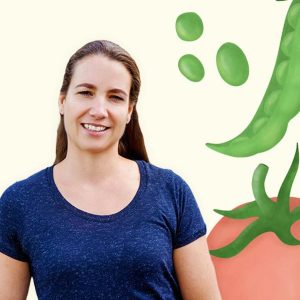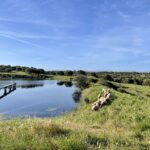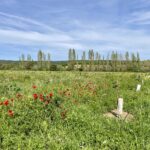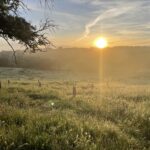My 5 key insights after six months in Portugal and Spain
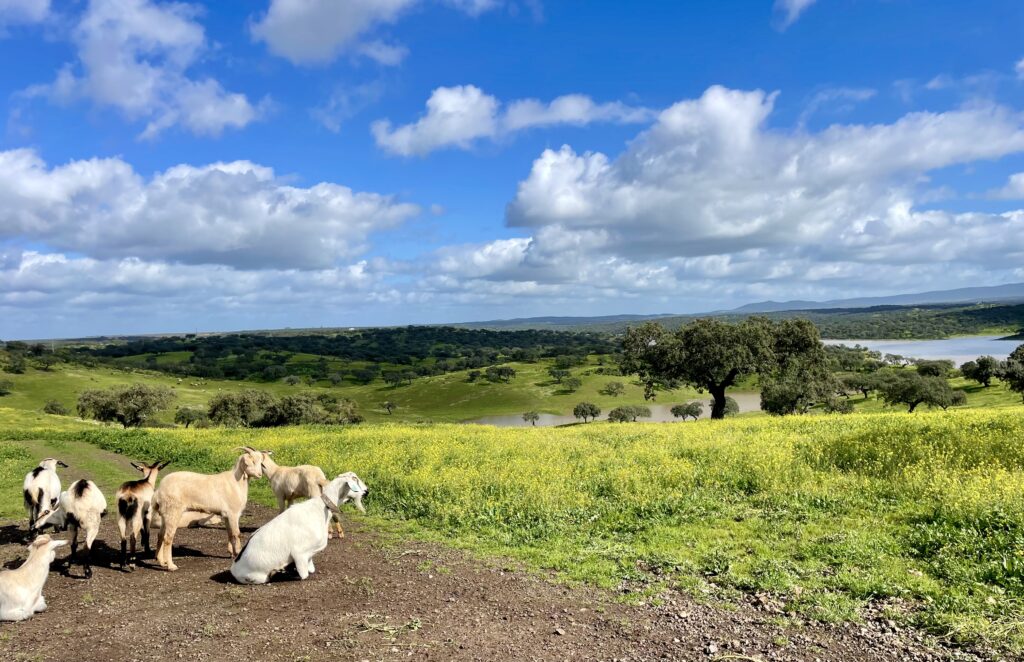
After six months working with peasmakers in Spain and Portugal, these are my 5 key insights for the transition of our food system.
(Please note that this text is translated by Open AI as I write my all my peas in Dutch)
🌱 Trees will help us out of the climate and food crisis. Almost every organic or regenerative farm I visited is now transitioning (partially) to some form of agroforestry. Trees retain water, promote biodiversity, improve soil quality, moderate temperatures, attract rain, and so much more. If you have one hour or one euro to invest in the future, put it into trees. Seriously.
🌱 Water is the new gold, so treat it accordingly. Many farms on the Iberian Peninsula either have little to no water now or anticipate a future with scarce water. Even in a country like the Netherlands, we will experience more periods of drought. Regenerative methods like building ditches and ponds and planting trees and ground cover should become part of our agriculture. We often have enough water, but we cannot afford to see that abundance as something that will always be there.
🌱 Animals play a crucial role in our food system. And yes, that comes from someone who believes the future is plant-based. Let’s be clear: I’m not talking about hundreds of animals in a barn. No, I’m talking about animals that are part of the ecosystem they inhabit. Cows, pigs, and sheep that provide manure, maintain the estate by grazing, and aerate the soil. And occasionally, they provide meat. But that’s incidental, a luxury for those who desire it.
🌱 The soil is the foundation of our existence; looking at it with a short-term perspective is pointless. The soil belongs to no one; everyone is merely a passerby. This entails the responsibility to leave the soil in a way that it continues to produce food for future generations. This excludes short-term “solutions” like fertilizers, pesticides, and intensive plowing. Is the soil rich? Then so are we.
🌱 Nature is incredibly resilient, magical, and powerful; therein lies the knowledge to solve our challenges. It’s an illusion that we can “manage” nature. We are nature; resisting it is never the way forward. Let’s delve into how nature approaches things, learn from it, and move with it. If we don’t? That’s fine too. We’ll eventually experience its power, whether we want to or not.
And despite the differences in climate and soil between Spain and Portugal, I believe the core of producing food in a future-proof way is the same everywhere. We can learn so much from what regenerative farmers are doing in areas already heavily affected by climate change. They are the pioneers. By following, supporting, and learning from them, we can better prepare for what lies ahead.
Ik ben Chantal en reis door het land in mijn camper searching for peas. Ik maak verhalen vol inspiratie over peasmakers; voedselveranderaars die werken met hun hart en zo de wereld veranderen. Ik ga aan de slag bij ze voor een dag of week. Zo leer ik hun missie beter kennen en kom ik erachter wat hen drijft als persoon. In de tussentijd probeer ik te ontdekken wat het voor mij betekent om een goed leven te leven. Mijn ervaringen deel ik met jullie.
